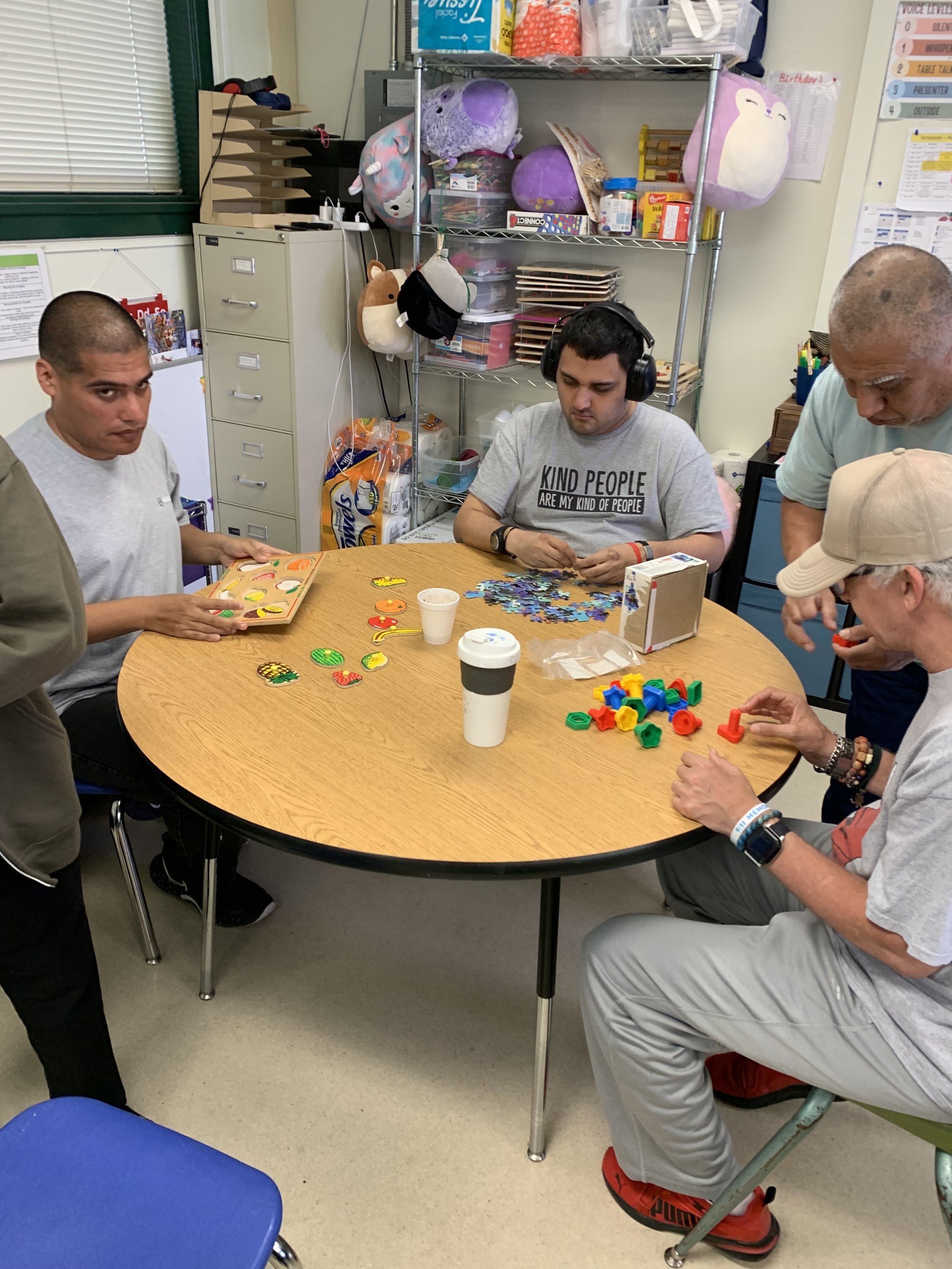
Materials for Learning
Ensuring Access and Dignity: The Importance of Ability-Appropriate Materials for Adults with Developmental Disabilities
In our journey towards inclusivity and equality, it is crucial to focus on every segment of society, including adults with developmental disabilities. These individuals, often overlooked or marginalized, deserve the same opportunities for growth, learning, and personal fulfillment as anyone else. One of the most significant ways we can support them is by providing access to ability-appropriate materials.
Understanding the Need
Adults with developmental disabilities face unique challenges in accessing educational and recreational materials that cater to their abilities. These challenges stem from varying cognitive, sensory, and physical capabilities that may require specialized formats or adaptations. For instance, individuals with intellectual disabilities may benefit from simplified language, visual aids, or interactive formats that enhance comprehension and engagement.
Promoting Independence and Engagement
Access to ability-appropriate materials empowers individuals with developmental disabilities to participate more fully in daily activities and social interactions. Whether it's through adapted reading materials, sensory-friendly resources, or assistive technologies, these tailored approaches foster independence and confidence. They enable individuals to express themselves, make choices, and engage meaningfully with their peers and community.
Respecting Dignity and Individuality
Dignity lies at the heart of every human interaction, regardless of ability. By offering materials that respect individuals' capabilities and preferences, we affirm their dignity and uphold their right to access information and entertainment on their own terms. This respect extends beyond mere accessibility—it acknowledges their unique identities and strengths, fostering a sense of belonging and worth.
Bridging Gaps in Accessibility
Unfortunately, the availability of ability-appropriate materials remains limited in many spheres of life. Educational institutions, workplaces, healthcare facilities, and recreational venues can all benefit from adopting inclusive practices that prioritize accessibility. This includes investing in adapted learning materials, training staff in disability awareness, and leveraging technology to bridge gaps in accessibility.
Empowering Through Collaboration
Achieving meaningful inclusion requires collaboration among educators, caregivers, healthcare providers, policymakers, and community members. By working together, we can identify barriers, implement inclusive practices, and advocate for systemic changes that promote access and dignity for adults with developmental disabilities. This collaborative effort strengthens our communities and enriches the lives of all individuals involved.
Conclusion
In conclusion, the provision of ability-appropriate materials is not just about meeting a basic need—it's about honoring the inherent value and potential of every individual. By ensuring access to these materials, we empower adults with developmental disabilities to lead fulfilling lives, contribute to society, and experience the dignity they deserve. Let us continue to champion inclusivity and advocate for a world where everyone, regardless of ability, can thrive and participate fully in all aspects of life.